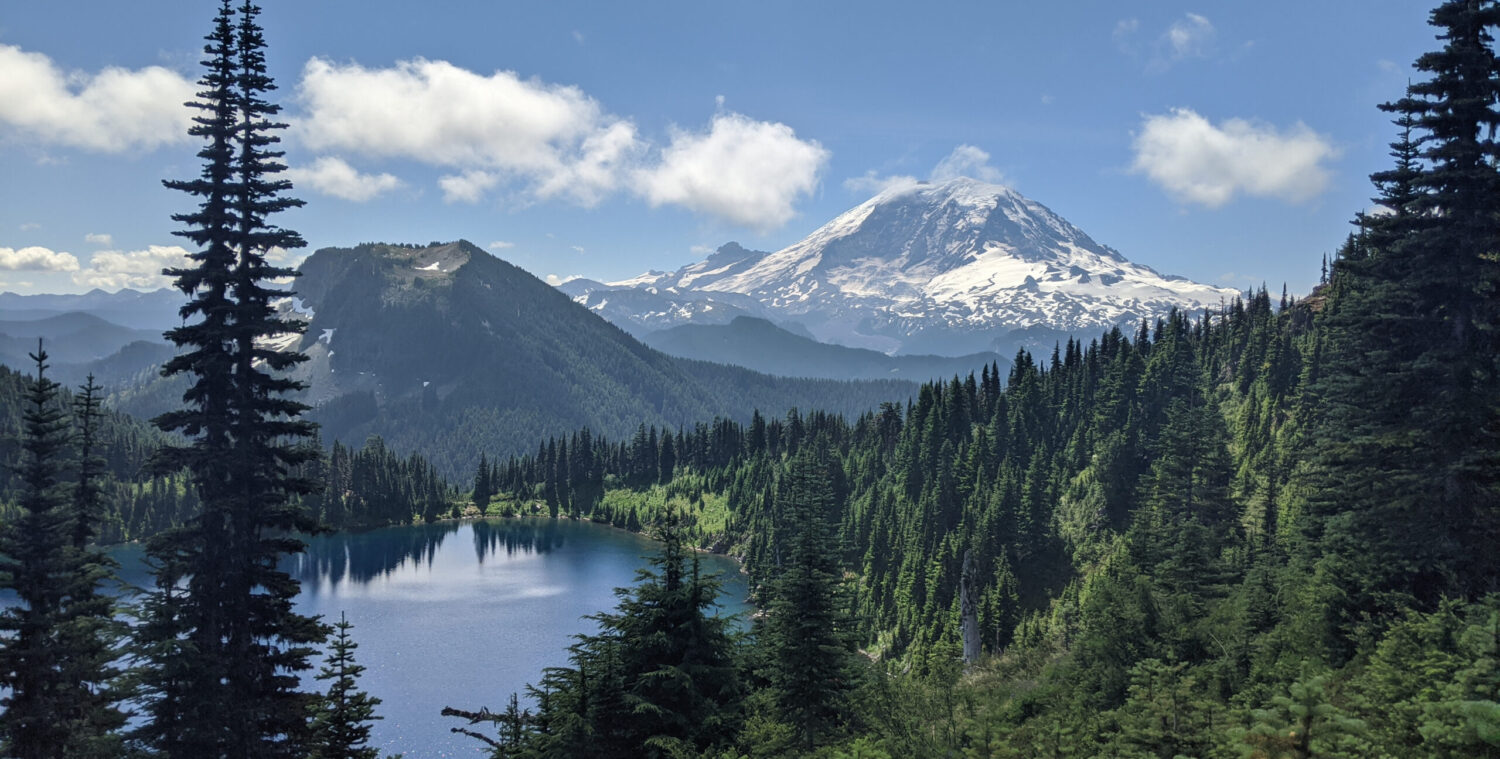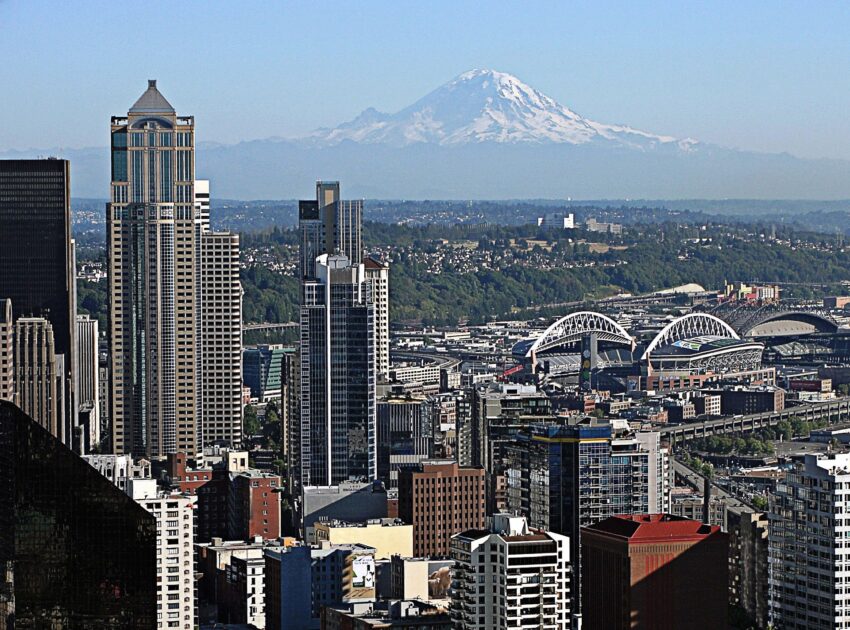Washington State is known for its natural beauty, from the rugged coastline to the majestic mountains. With so much to see and explore, it’s no surprise that tourism is a significant contributor to the state’s economy. However, with the rise of sustainable tourism, travelers are looking for eco-friendly travel options that minimize their impact on the environment. In this blog post, we’ll explore the rise of sustainable tourism in Washington State and discuss how businesses can market their eco-friendly travel options to attract environmentally conscious travelers.
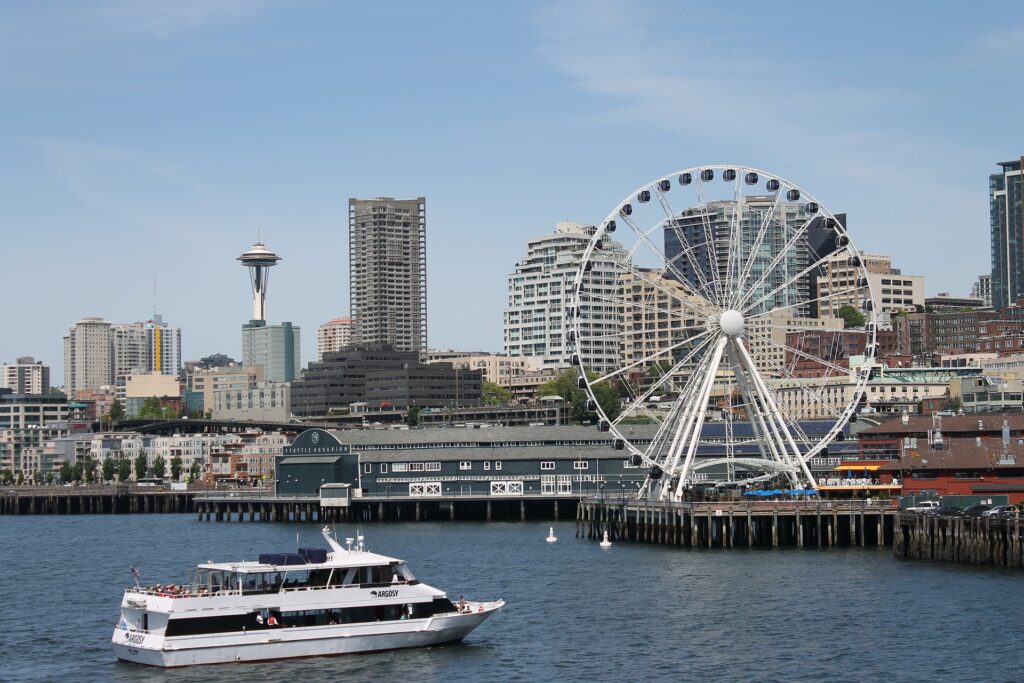
Sustainable tourism is becoming increasingly popular in Washington State. With a growing awareness of the impact of travel on the environment, travelers are looking for ways to minimize their carbon footprint while still enjoying all that the state has to offer. Sustainable tourism is about more than just minimizing waste and reducing carbon emissions. It’s also about supporting local communities and preserving cultural heritage.
Marketing Eco-Friendly Travel Options
So, what can businesses do to attract eco-conscious travelers? One way is to market eco-friendly travel options. This can include everything from sustainable transportation options to eco-friendly accommodations and activities.
One example of a business that is successfully marketing eco-friendly travel options in Washington State is EverGreen Escapes. EverGreen Escapes offers small-group tours that focus on sustainable tourism and conservation. They offer a variety of tours that explore the natural beauty of the state, from whale watching in the San Juan Islands to hiking in the North Cascades National Park.
EverGreen Escapes markets their tours as sustainable and eco-friendly experiences that have a minimal impact on the environment. They use hybrid vehicles for transportation, serve locally sourced and organic meals, and provide eco-friendly accommodations. Additionally, they partner with local organizations and donate a portion of their profits to conservation efforts.
By marketing their commitment to sustainability and conservation, EverGreen Escapes attracts eco-conscious travelers who want to experience Washington State’s natural beauty while minimizing their impact on the environment. Their dedication to sustainable tourism practices sets them apart from other tour companies and resonates with travelers who prioritize environmental responsibility.
Another example of a business that is successfully marketing eco-friendly travel options is the Salish Lodge & Spa. The Salish Lodge & Spa is located in Snoqualmie Falls, just outside of Seattle. The lodge is committed to sustainability and has implemented a number of eco-friendly practices, such as composting and recycling, energy-efficient lighting, and low-flow showerheads. They also source their food from local farms and feature seasonal, sustainable menu items in their restaurant.
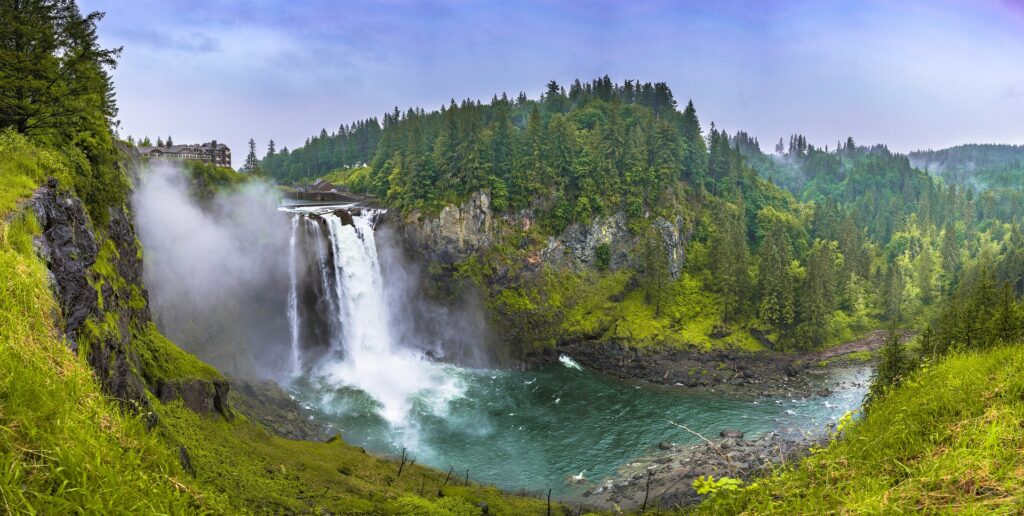
The Salish Lodge & Spa’s marketing strategy includes highlighting their commitment to sustainability and promoting their eco-friendly amenities, such as their organic cotton linens and their electric vehicle charging stations. By marketing their eco-friendly travel options, the Salish Lodge & Spa is able to attract travelers who are looking for sustainable and luxurious accommodations.
Partnering With Local Organizations and Supporting Conservation Efforts
In addition to marketing eco-friendly travel options, businesses can also partner with local organizations and support conservation efforts in the areas where they operate. This not only helps to preserve the natural environment but also supports the local community and economy. By partnering with organizations such as the Washington State Parks Foundation or the Nature Conservancy, businesses can attract environmentally conscious travelers who are looking for ways to give back and support conservation efforts.
Avoid Greenwashing and Educate Travelers
But marketing eco-friendly travel options is simply just the first step. Businesses need to ensure that their eco-friendly practices are genuine and not just greenwashing. Greenwashing is the practice of making false or exaggerated claims about the environmental benefits of a product or service. It’s important for businesses to be transparent about their sustainability efforts and to back up their claims with evidence.
Have you ever come across a business that you suspect is greenwashing? If so, how did it make you feel about the business?
Another important aspect of sustainable tourism is educating travelers about the importance of sustainability and how they can minimize their impact on the environment. Businesses can do this by providing information about local conservation efforts, offering educational tours, and promoting sustainable practices such as reducing plastic use and conserving water.
Evergreen Sustainable Tourism Certification
The Washington State Tourism Alliance has also launched a sustainable tourism initiative called “Evergreen Sustainable Tourism Certification” which recognizes businesses that are committed to sustainable practices. The program provides a certification process that assesses businesses’ sustainability efforts and provides resources to help them improve their environmental impact. By participating in the certification process, businesses can attract environmentally conscious travelers who are looking for sustainable tourism experiences.
Promoting Sustainable Tourism Through Social Media
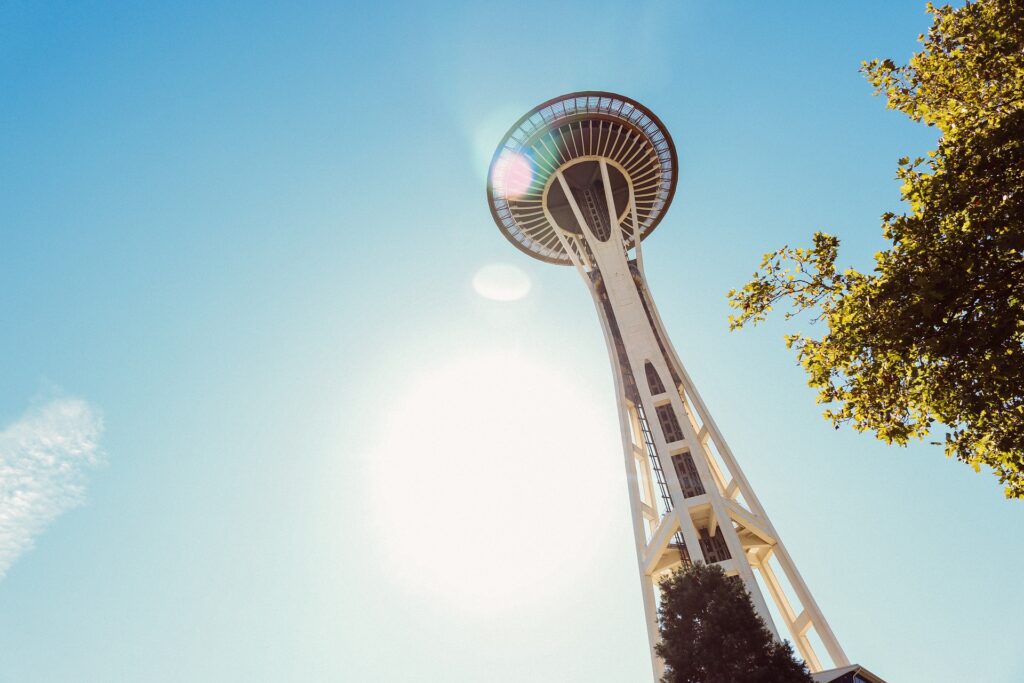
Another way to promote sustainable tourism in Washington State is through the use of social media. Social media platforms like Instagram and Facebook are powerful marketing tools that can be used to promote eco-friendly travel options and inspire travelers to make sustainable choices. Businesses can use these platforms to showcase their sustainability efforts, share information about local conservation initiatives, and encourage travelers to reduce their impact on the environment.
Have you ever been inspired to travel to a destination based on what you saw on social media? If so, what inspired you?
Collaborating to Create Eco-Friendly Travel Packages
To further promote sustainable tourism in Washington State, businesses can also collaborate with each other to create eco-friendly travel packages. For example, a tour company could partner with a hotel and a restaurant that are committed to sustainability to create a complete eco-friendly travel experience for their customers. By collaborating with like-minded businesses, companies can create a network of sustainable tourism options that attract eco-conscious travelers.
Collaboration among businesses is a powerful tool to promote sustainable tourism in Washington State. By working together, businesses can create unique and complete eco-friendly travel experiences for their customers. For example, a tour company that specializes in eco-friendly kayaking and camping tours could partner with a hotel and a restaurant that are committed to sustainability to create a complete eco-friendly travel package for their customers. The package could include a kayak tour, overnight camping experience in a sustainable campsite, and meals made with local, sustainable ingredients.
One example of such collaboration is the Sustainable Destination Partnership program launched by the Olympic Peninsula Tourism Commission. This program brings together businesses across the Olympic Peninsula to promote sustainable tourism and conservation efforts in the region. The program provides businesses with training and resources on sustainable practices and marketing strategies. Participating businesses can then promote their sustainability efforts and collaborate with other businesses in the program to create unique and sustainable travel experiences for their customers.
Another example of collaboration in sustainable tourism is the “Island Ambassadors” program launched by the San Juan Islands Visitors Bureau. This program brings together local businesses, organizations, and volunteers to promote sustainable tourism and conservation efforts in the San Juan Islands. The program provides training and resources to ambassadors who then educate visitors about sustainable travel practices and local conservation efforts. Participating businesses can then collaborate with ambassadors to create unique and sustainable travel experiences for their customers.
Promoting Alternative Sustainable Tourism Practices
Moreover, sustainable tourism in Washington State can be further promoted by encouraging visitors to explore less-visited areas. By promoting travel to less-visited areas, businesses can help to reduce the impact of tourism on popular destinations and spread the economic benefits of tourism to smaller communities. This can also help to preserve cultural heritage and biodiversity in these areas.
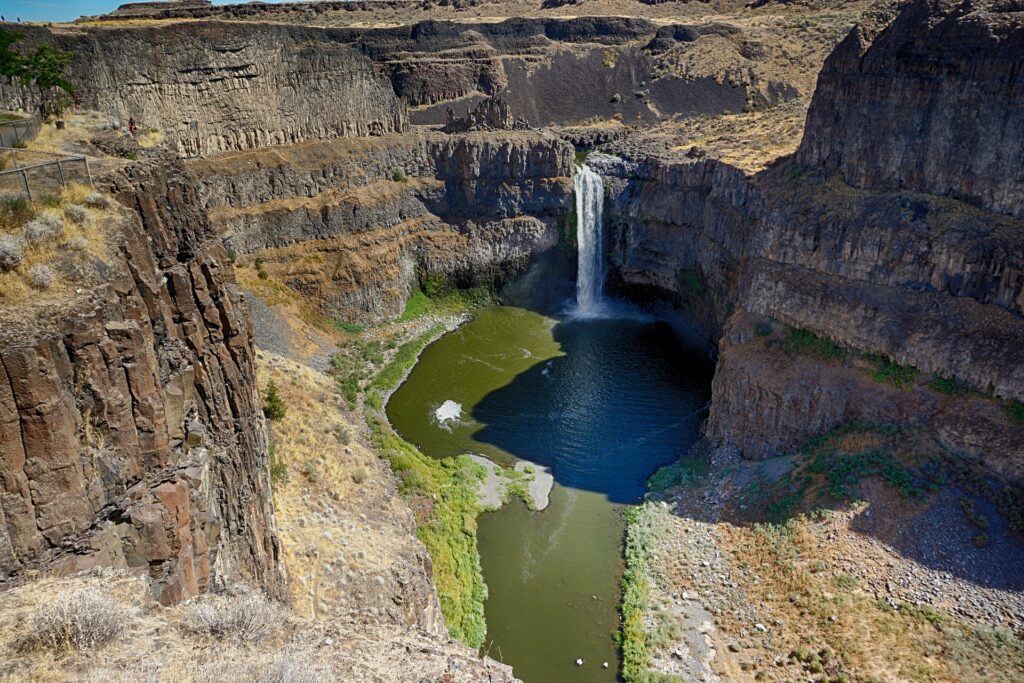
One specific example of promoting travel to less-visited areas in Washington State is the promotion of the Palouse region in southeastern Washington. The Palouse is a region known for its rolling hills and scenic landscapes, as well as its agricultural heritage. Despite its natural beauty, it is not as well-known as other popular destinations in the state such as Seattle or the San Juan Islands.
To promote sustainable tourism in the Palouse, businesses and organizations have come together to create the Palouse Scenic Byway. The byway is a 208-mile route that takes travelers through the scenic landscapes of the Palouse region, passing through small towns and highlighting local attractions. The route is designed to encourage visitors to explore the region and support local businesses.
In addition to the scenic byway, businesses in the Palouse have also come together to create sustainable tourism experiences. For example, the Blue Mountain Station in Dayton is a community-owned food and agriculture center that offers tours and workshops on sustainable agriculture and food production. The center also features a local foods market and a commercial kitchen for local food producers.
Another example is the Dahmen Barn in Uniontown, which is a historic barn that has been converted into an art center. The center features local artwork and hosts workshops and events that promote local culture and heritage.
By promoting travel to less-visited areas like the Palouse, businesses can help to reduce the impact of tourism on popular destinations and support smaller communities. This can also help to preserve cultural heritage and biodiversity in these areas, which are often at risk due to the effects of tourism on the environment.
In addition to promoting sustainable tourism, businesses can also work to reduce their environmental impact in other ways. An example of a business reducing their environmental impact could be a hotel in Washington State. The hotel could implement a range of sustainable practices to reduce their carbon footprint, such as:
- Installing energy-efficient lighting, HVAC systems, and appliances to reduce energy consumption.
- Using eco-friendly cleaning products to minimize the use of harmful chemicals.
- Encouraging guests to reuse towels and linens to reduce water and energy use.
- Providing bike rentals or promoting public transportation to reduce the number of cars on the road.
- Offering locally-sourced and organic food options in their restaurant to support local farmers and reduce the carbon footprint associated with transporting food.
By implementing these sustainable practices, the hotel can not only reduce their environmental impact but also attract eco-conscious travelers who are looking for sustainable accommodations. Additionally, by leading by example, the hotel can encourage other businesses in the tourism industry to adopt similar sustainable practices.
Sustainable Buildings Policy
Finally, as sustainable tourism continues to grow in popularity, it’s important for policymakers to support this trend by implementing policies that encourage sustainable tourism practices. This can include incentives for businesses that adopt sustainable practices, funding for conservation initiatives, and regulations to limit the environmental impact of tourism.
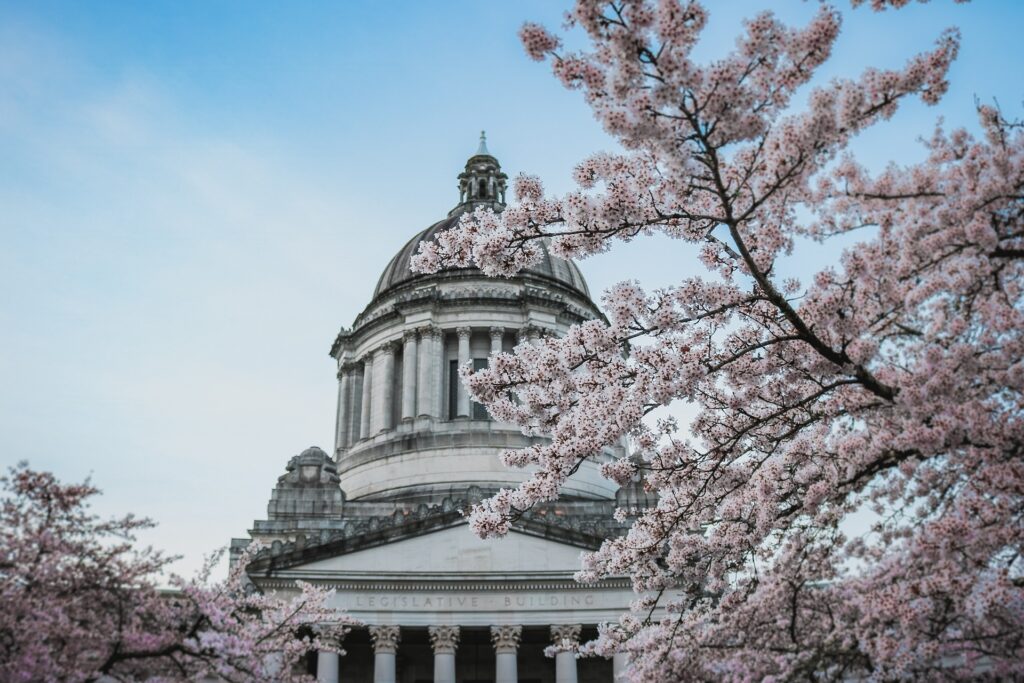
An example of policymakers supporting sustainable tourism can be seen in the city of Seattle, located in Washington State. In 2016, the city adopted the Sustainable Buildings Policy, which requires all new construction and major renovations in the city to meet high sustainability standards. This policy includes requirements for energy efficiency, water conservation, and use of sustainable materials.
This policy has had a significant impact on the tourism industry in Seattle, as many hotels and other tourist accommodations have had to adapt to meet these standards. However, the policy has also attracted eco-conscious travelers who are looking for sustainable travel options.
Additionally, Seattle has implemented several other policies to support sustainable tourism, including a ban on single-use plastics and a goal to become carbon-neutral by 2050. These policies not only benefit the environment, but also contribute to the city’s reputation as a leader in sustainable tourism.
Parting Thoughts
In conclusion, the rise of sustainable tourism in Washington State is a positive trend that benefits both the environment and the local economy. By marketing eco-friendly travel options, businesses can attract environmentally conscious travelers who are looking for sustainable tourism experiences. However, it’s important for businesses to ensure that their sustainability efforts are genuine and not just greenwashing. By partnering with local organizations, educating travelers, and participating in sustainable tourism initiatives, businesses can help to preserve Washington State’s natural beauty for generations to come.
If you’re reading this you made it to the end SO I want to take this time to say thanks for reading! Furthermore I would like to say Washington State’s natural beauty is a unique and precious resource, and sustainable tourism is an excellent way to enjoy it while preserving it for future generations. If you have any thoughts or feelings on this topic, please feel free to share them in the comments section below. As a call to action, I encourage you to consider supporting businesses that are committed to sustainability and to practice sustainable tourism yourself. Together, we can make a positive impact on the environment and support local communities.

